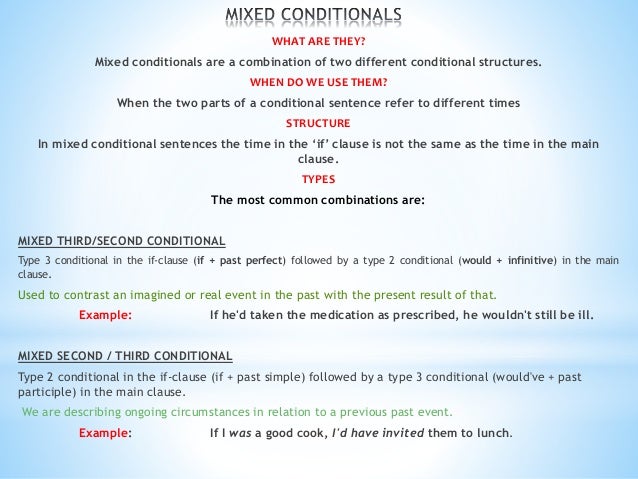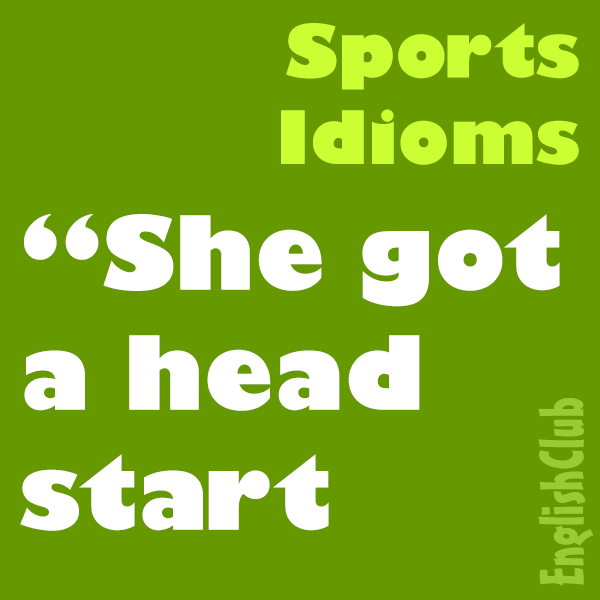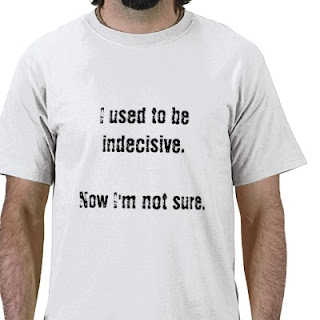Online English Grammar Practice
UNIT 5 SEE THE WORLD
CONDITIONALS
,
Prefixes and Suffixes
<<<<<<<<<<<<<<<<<<<<<<<<<<<<<<<<<<<<<<<<<<<<<<<<<<<<<<<<<<
UNIT 4 MODALS AND PAST MODALS
Would Rather (Sooner) vs Would Prefer
<<<<<<<<<<<<<<<<<<<<<<<<<<<<<<<<<<<<<<<<<<<<<<<<<<<<<<<<<<
UNIT 3 THE PASSIVE VOICE
Passive Voice with exercises
PERSONAL AND IMPERSONAL PASSIVE CONTRUCTIONS
IMPERSONAL PASSIVE
a) It is a special case of passive, commonly associated with reporting verbs, that is verbs of saying and thinking: think, believe, say, report, know, consider, presume, hope…. These verbs are often followed by a to-infinitive form in the passive.
These types of sentences are very common in newspapers and TV news, and more colloquially, when someone is gossiping.
Ex.: Active- The police think the terrorists are in France.
Passive- The terrorists are thought to be in France.
b) How have we done this?
1. We take the subject of the second sentence (the terrorists)
2. We make the reporting verb think (simple present) passive in the same tense as in the active: are thought (simple present passive).
3. Finally, the verb of the second sentence (are) becomes infinitive: to be.
Or we introduce “It” as the subject of the passive verb and keep the rest of the active sentence: It is thought that the terrorists are in France.
c) Which form of the infinitive shall we use?
There are four infinitive forms depending on the tense of the active sentence.
- 1. Simple to write
- 2. Continuous to be writing
- 3. Perfect to have written
- 4. Perf. Cont. to have been writing
1. If it carries an idea of present or future: Simple: to be.
2. If it carries an idea of past, whatever the tense (Past Simple, Past Perfect, Present Perfect): Perfect: to have escaped.
3. If either of them is in a continuous form, use the adequate cont.form: to be writing or to have been writing.
Ex: The terrorists are thought to be hiding in a flat (now).
They are also thought to have stolen a big amount of explosives from a mine (some time ago)
Passive voice kahoot
IMPERSONAL PASSIVE
a) It is a special case of passive, commonly associated with reporting verbs, that is verbs of saying and thinking: think, believe, say, report, know, consider, presume, hope…. These verbs are often followed by a to-infinitive form in the passive.
These types of sentences are very common in newspapers and TV news, and more colloquially, when someone is gossiping.
Ex.: Active- The police think the terrorists are in France.
Passive- The terrorists are thought to be in France.
b) How have we done this?
1. We take the subject of the second sentence (the terrorists)
2. We make the reporting verb think (simple present) passive in the same tense as in the active: are thought (simple present passive).
3. Finally, the verb of the second sentence (are) becomes infinitive: to be.
Or we introduce “It” as the subject of the passive verb and keep the rest of the active sentence: It is thought that the terrorists are in France.
c) Which form of the infinitive shall we use?
There are four infinitive forms depending on the tense of the active sentence.
- 1. Simple to write
- 2. Continuous to be writing
- 3. Perfect to have written
- 4. Perf. Cont. to have been writing
1. If it carries an idea of present or future: Simple: to be.
2. If it carries an idea of past, whatever the tense (Past Simple, Past Perfect, Present Perfect): Perfect: to have escaped.
3. If either of them is in a continuous form, use the adequate cont.form: to be writing or to have been writing.
Ex: The terrorists are thought to be hiding in a flat (now).
They are also thought to have stolen a big amount of explosives from a mine (some time ago)
**************************************************************************
**************************************************************************
Causatives: Have and Get
CAUSATIVE FORM
UNIT 2
Past Tenses Review
Used to
It is usually followed by an infinitive: We used to swim in the river.But sometimes the following infinitive is left out: ♦ I don’t play golf now, but I used to.
Used to only exists as a past tense.
Questions and negatives are usually formed with ‘did’ + use to (with no ‘d’): Did you use to work here? ♦ We didn’t use to earn much. The spelling ‘did used to’ is sometimes used, but many people think that this is wrong.
In formal English, negatives are often formed with used not to: They used not to allow shops to be open on Sundays. The short forms usen’t to and usedn’t to are sometimes used, but they sound rather formal and old-fashioned.
Would
We use it for repeated actions or routines in the past. We do not use Would with stative verbs, because they describe states and not actions.
Example: We used to/would go camping by the river. (we don´t go camping anymore).
Used to
It is usually followed by an infinitive: We used to swim in the river.But sometimes the following infinitive is left out: ♦ I don’t play golf now, but I used to.
Used to only exists as a past tense.
Questions and negatives are usually formed with ‘did’ + use to (with no ‘d’): Did you use to work here? ♦ We didn’t use to earn much. The spelling ‘did used to’ is sometimes used, but many people think that this is wrong.
In formal English, negatives are often formed with used not to: They used not to allow shops to be open on Sundays. The short forms usen’t to and usedn’t to are sometimes used, but they sound rather formal and old-fashioned.
We use it for repeated actions or routines in the past. We do not use Would with stative verbs, because they describe states and not actions.
Example: We used to/would go camping by the river. (we don´t go camping anymore).
The Future Tenses with Friends
Future All Tenses
<<<<<<<<<<<<<<<<<<<<<<<<<<<<<<<<<<<<<<<<<<<<<<<<<<<<<<<<<<
UNIT 1
Word Formation exercises
COLLOCATIONS
A collocation is a combination of words that appear together relatively often in a particular language. Now, this might sound like an idiom or a phrasal verb. This is not necessarily true. Idioms and phrasal verbs are collocations, but not all collocations are idioms or phrasal verbs.
COLLOCATIONS
A collocation is a combination of words that appear together relatively often in a particular language. Now, this might sound like an idiom or a phrasal verb. This is not necessarily true. Idioms and phrasal verbs are collocations, but not all collocations are idioms or phrasal verbs.
Types of collocation
There are several different types of collocation made from combinations of verb, noun, adjective etc. Some of the most common types are:
- adverb + adjective: Invading that country was an utterly stupid thing to do.
- adjective + noun: The doctor ordered him to take regular exercise.
- noun + noun: Let's give Mr Jones a round of applause.
- noun + verb: The lion started to roar when it heard the dog barking.
- verb + noun: The prisoner was hanged for committing murder.
- verb + expression with preposition: At first her eyes filled with horror, and then she burst into tears.burst into tears (NOT
blow up in tears)
- verb + adverb: I vaguely remember that it was growing dark when we left.
There are several different types of collocation made from combinations of verb, noun, adjective etc. Some of the most common types are:
- adverb + adjective: Invading that country was an utterly stupid thing to do.
- adjective + noun: The doctor ordered him to take regular exercise.
- noun + noun: Let's give Mr Jones a round of applause.
- noun + verb: The lion started to roar when it heard the dog barking.
- verb + noun: The prisoner was hanged for committing murder.
- verb + expression with preposition: At first her eyes filled with horror, and then she burst into tears.burst into tears (NOT
blow up intears) - verb + adverb: I vaguely remember that it was growing dark when we left.
B2 FIRST COLLOCATIONS EXERCISE
<<<<<<<<<<<<<<<<<<<<<<<<<<<<<<<<<<<<<<<<<<<<<<<<<<<<<<<<<
<<<<<<<<<<<<<<<<<<<<<<<<<<<<<<<<<<<<<<<<<<<<<<<<<<<<<<<<<
Reporting Verbs Exercise
Reported speech grammar and exercises
>>>>>>>>>>>>>>>>>>>>>>>>>>>>>>>>>>>>>>>>>>>>>>>>>>
Such-so, Too-Enough Sentence transformations
<<<<<<<<<<<<<<<<<<<<<<<<<<<<<<<<<<<<<<<<<<<<<<<<<<<<<<<<<
RELATIVE CLAUSES
DEFINING AND NON DEFINING RELATIVE CLAUSES
<<<<<<<<<<<<<<<<<<<<<<<<<<<<<<<<<<<<<<<<<<<<<<<<<<<<<<<<<
>>>>>>>>>>>>>>>>>>>>>>>>>>>>>>>
<<<<<<<<<<<<<<<<<<<<<<<<<<<<<<<<<<<<<<<<<<<<<<<<<<<<<<<<<
Modal Verbs
<<<<<<<<<<<<<<<<<<<<<<<<<<<<<<<<<<<<<<<<<<<<<<<<<<<<<<<<<
Adjectives and Prepositions Exercise 1
<<<<<<<<<<<<<<<<<<<<<<<<<<<<<<<<<<<<<<<<<<<<<<<<<<<<<<<<<
Cleft sentences – adding emphasis
<<<<<<<<<<<<<<<<<<<<<<<<<<<<<<<<<<<<<<<<<<<<<<<<<<<<<<<<<
Rewite the following sentences using the words given in brackets (...) so that they mean exactly the same as the first sentence.
Specific Uses of English Grammar Articles
| In this case | Example Sentence | |
| Use "a" / "an" | You mention something for the first time. | I have a problem. |
| You want to say that something belongs to a certain group. | This is a table. | |
| You want to say that someone belongs to a certain group. | She is a designer. | |
| You want to say that something is that kind of thing. | I've built a strong ship. | |
| You want to say that someone is that kind of person. | He is a nice guy. | |
| Use "the" | You talk about a specific thing. | The feeling I got was very strange. |
| It is clear which thing you are talking about. | I passed the test! | |
| There is only one such thing. | Look at the sun. | |
| No article | You talk about something in general. | Pigs can't fly. Diving can be difficult. |
| You talk about cities, countries, streets, etc. | We visited Italy. | |
<<<<<<<<<<<<<<<<<<<<<<<<<<<<<<<<<<<<<<<<<<<<<<<<<<<<<<<<<


Practise Conditionals
Katie Melua - If You Were A Sailboat

FCE (First Certificate) Conditionals
<<<<<<<<<<<<<<<<<<<<<<<<<<<<<<<<<<<<<<<<<<<<<<<<<<<<<<<<<
Sports Idioms



























No hay comentarios:
Publicar un comentario